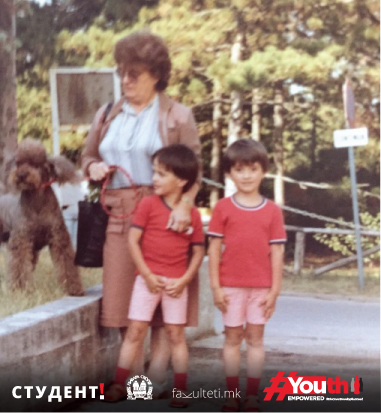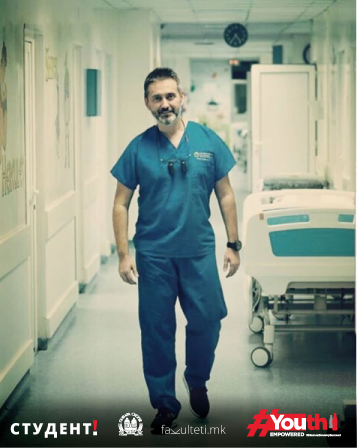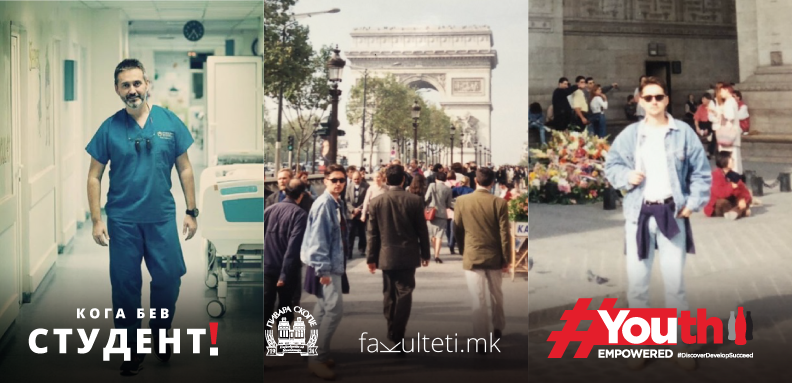
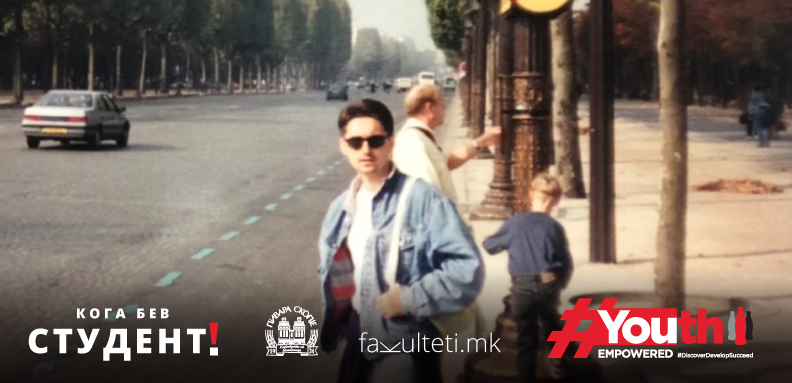
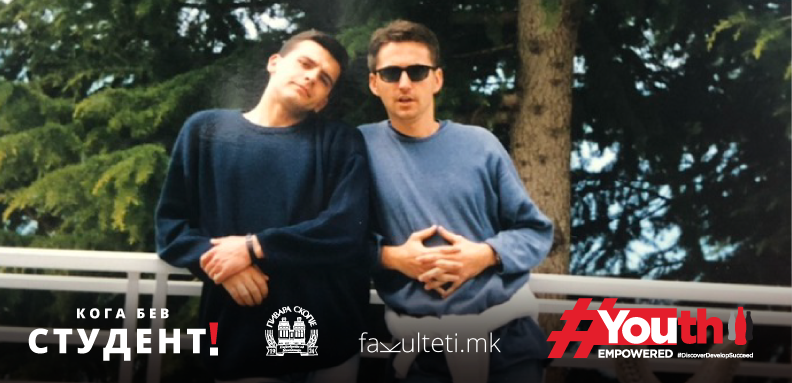
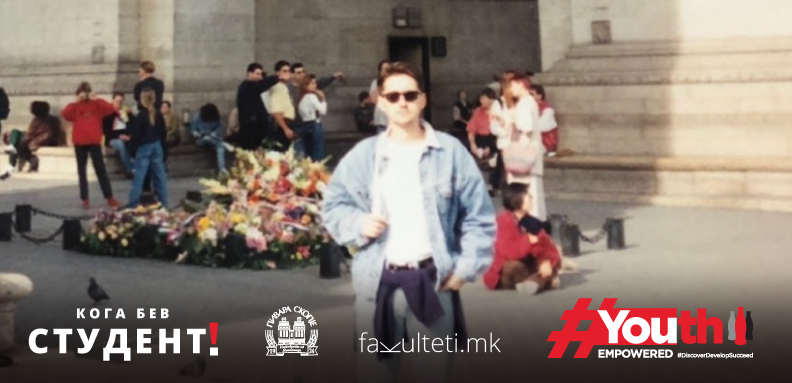
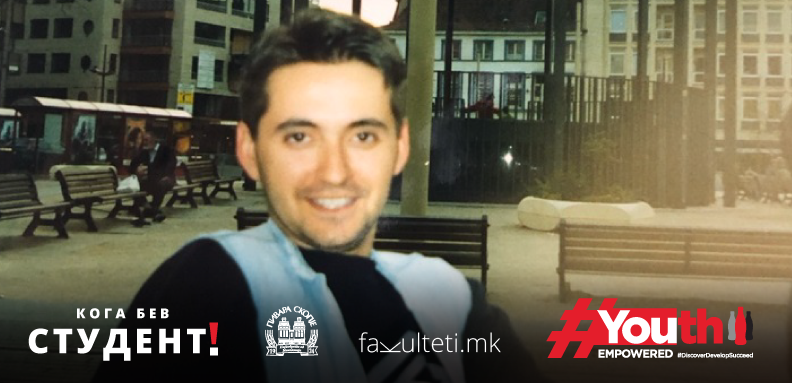
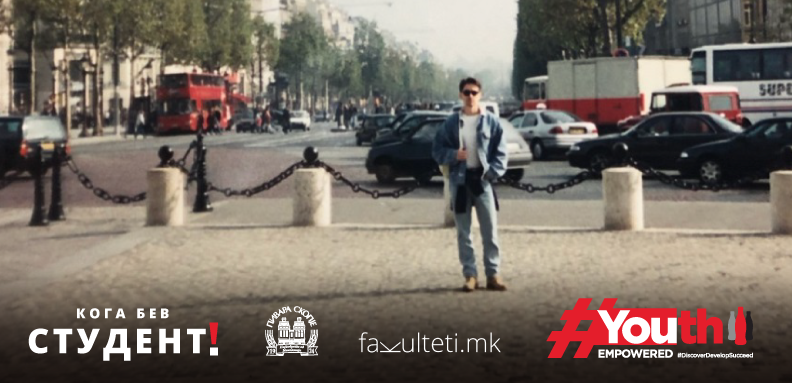
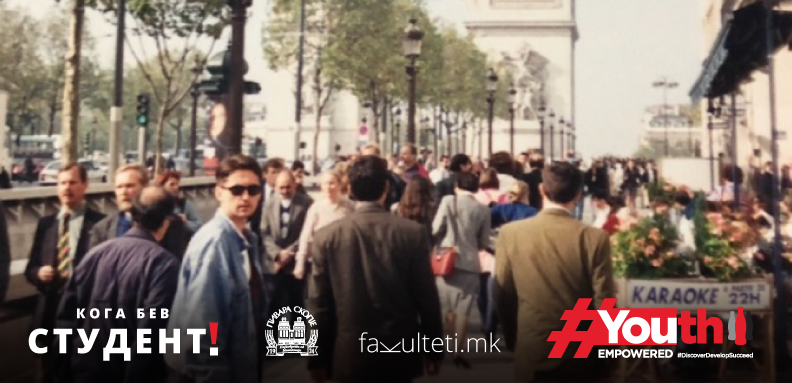
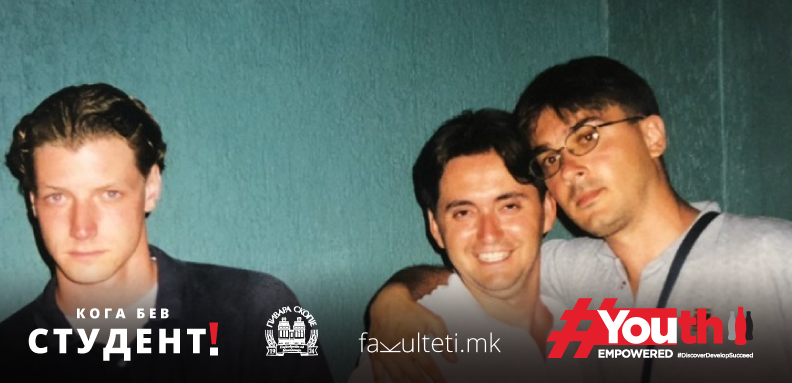
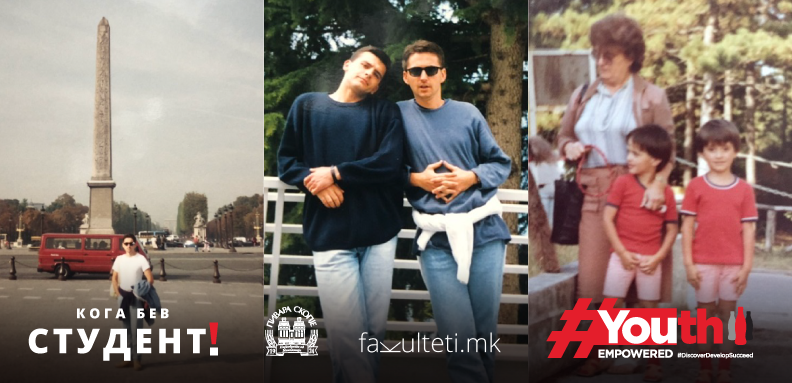
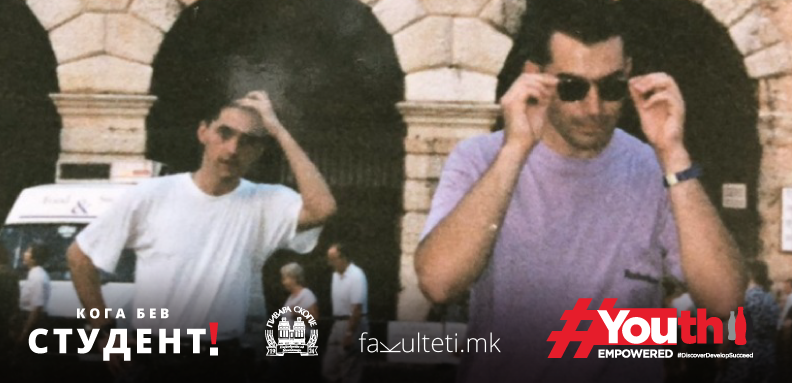
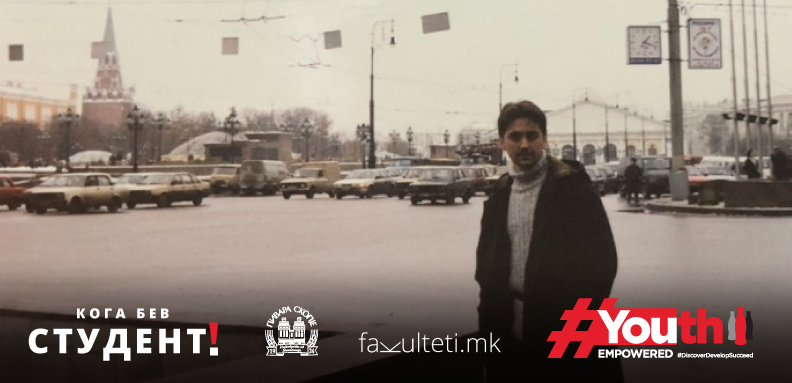
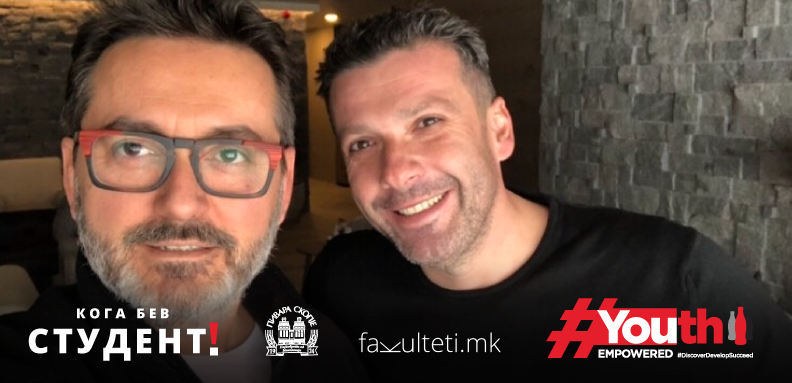
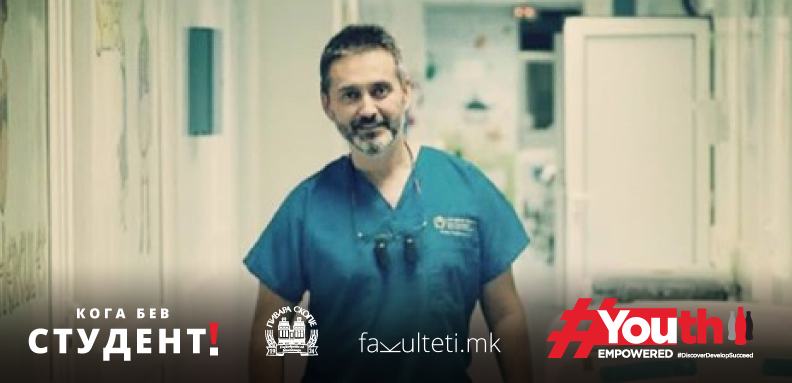
WHEN I WAS A STUDENT WITH VLADIMIR CHADIKOVSKI: I WAS PART OF AN EXTREMELY STRONG GENERATION
From this perspective, I can clearly see that the faculty gives you the medical alphabet and after that you have a lot of learning and working. Too much free time is poorly used, the academic years will fly quickly, and you suddenly get a license and hit a wall built of bricks of ignorance, above all, lack of practical knowledge – says the top pediatric cardiac surgeon in the column “When I was a student” that we realized together with FakultetiMK
I was born in Yugoslavia, I was growing up in FYROM, I am working in North Macedonia; entire generations were lost, along with the morality, ethics… are we a lost generation, I wonder? My friends from our generation are extremely good. Even today, we hang out and many of them are very successful,” says Vladimir Chadikovski, whom we reminded of the years of education, especially of the student days in our column “When I was a student “, which we realized together with Pivara Skopje.
The pediatric cardiac surgeon at the Zan Mitrev Hospital was a diligent and dependable child, a model child, or as he says – he had been doing everything by the book! He graduated at the elementary school 29 Noemvri, today’s Vojdan Chernodrinski.
– It was a period (late 70s and early 80s) that the new generations cannot understand – beautiful, carefree, honest; we had a three-speed Pony bicycle with a banana seat, books about Tito that were purchased by the meter , two-door Zastava 101 Comfort, Alan Ford, excursions across Yugoslavia, wearing a blue coat because Tito was also a metalworker. In the words of Josip Broz Tito: “When we were comrades, we lived like gentlemen”. I was the class president from 1st to 8th grade, the first member to be elected in the executive board (I was choosing the principal), I was carrying the Relay of Youth (I was so happy that I did not catch any sleep for two days), my parents did not know what grade B was… Even today I am wondering: “Was it supposed to be like that, was it right?” I remember my grade teacher Milka – a true pedagogue, as you can rarely find today. I graduated summa cum laude from elementary school,” he says.
Entrance examination at the Universal Hall
He did not hesitate to continue his education at the secondary medical school Pance Karagozov, where he kept the same pace of a great student, class president in all four years, a student of the generation… In high school he faced a major challenge.
– My aunt Slavjanka Chadikovska taught Latin in the Medical School and I had to constantly prove that I am not there with pulled strings. And what kind of professor she was? Slavjanka gave Lazar Kolishevski’s daughter a C at the end of the year and no one has instructed her to correct her grade. I emphasize this to show what times those were. She decided to retire two years earlier because she could not stand when they started turning all Fs into As,” the doctor says.
They took the entrance examination for the Medical Faculty at the Universal Hall, as he says, when it was 200 degrees. He passed it with only one wrong answer.
– I was automatically put into a group of the first 20 students who passed the test, all from the Skopje high school Nikola Karev and I was the only one from the medical school. It was an extremely strong generation, one student better than the other. When we were taking an exam, everyone got a 9 or 10 – all of them! There were excellent students in the other groups too; the whole generation was extraordinary and I think that today there is rarely such an outstanding generation. Healthy competition! – the cardiac surgeon recalls.
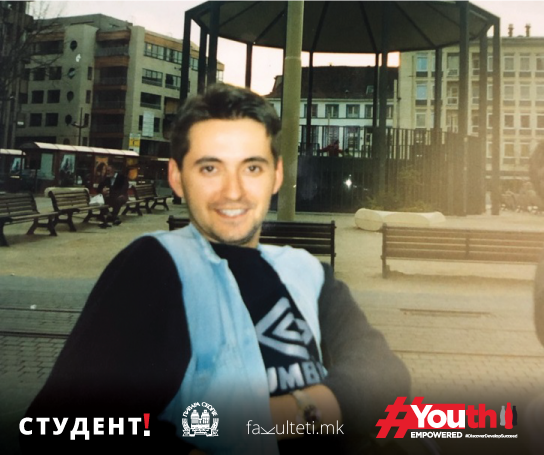 Being a physician easily got under his skin. He says he was a good student, but unlike his brother Metodija (who also studied medicine) who was more thorough, Vladimir studied more under pressure.
Being a physician easily got under his skin. He says he was a good student, but unlike his brother Metodija (who also studied medicine) who was more thorough, Vladimir studied more under pressure.
– From this perspective, I can clearly see that the faculty gives you the medical alphabet and after that you have a lot of learning and working. Too much free time is poorly used, the academic years will fly quickly, and you suddenly get a license and hit a wall built of bricks of ignorance, above all, lack of practical knowledge. Students are not to blame. They are eager to learn, work, but they enter an educational system being destroyed for years. The same happened to me. After graduating, the real medicine started. In the West, after graduating, our colleagues are far more prepared to work – Chadikovski says, adding that he was not after a high GPA, but that it is important for those who want to continue with an academic career in parallel.
Dr. Aco Dimov – second father
When asked which professor he had learned from and been influenced by the most, he singled out Prof. Dr. Aco Dimov, who was his mentor when he decided on pediatric surgery.
– He became like a second father to me with the only difference I was not asking him for allowance. I owe him the most. A true mentor, not only for conveying the secrets of surgery, but also of life – he taught me how to be a better person, a better doctor. I hope that he is now also proud to have had a good student and that it was not all in vain,” he emphasizes.
He was hanging out the most with his colleagues from his group, with whom he spent most of his time during exercises, lectures. Going out during the studies was not very common because the being at the faculty required a lot and it was impossible to do everything.
– I communicate with many colleagues on a daily basis, both professionally and privately. I hang out with Dr. Viktor Kamnar the most; not a day goes by that we do not talk or see each other. Other than that, I still see childhood friends and some new friends I have come close with over the years who have nothing to do with medicine. Now, my friends who are not into medicine say jokingly that we are experiencing a fresh youth (second puberty) after 40 years, but I do not see it that way. Simply, you want to compensate for everything you’ve missed, that life passes very quickly and is extremely unpredictable, and you do not have another one. When you reach 40, you are already formed as a professional and as a person, and then you start to grab life with two hands. In my opinion, not everyone who graduated medicine and became a doctor or a surgeon became good at what he or she does – Cadikovski is categorical.
Healthy and smiling child is the biggest reward
He graduated from the Faculty in 1997 and started working at the Pediatric Surgery Clinic already the following year. He says that he did not see himself as a pediatric surgeon, even less so as a cardiac surgeon, since cardiac surgery for children in our country did not even exist and had yet to be created.
– I spent five years of my life developing the transplantation field in Macedonia; I was taking teams to Brussels for two years for education on liver transplantation in children; I established a foundation with which we wrote a new law for transplantation and by-laws that are still used today, approved by the EU. I have organized countless donor conferences and events; I have completely renovated the Pediatric Surgery Clinic, I have created the intensive care unit at the clinic for the first time so that post-surgery children do not have to wander in the streets. I always wanted to be productive, to contribute something, to leave something behind, regardless of whether the state respects it or not. The same applies to the Pediatric Surgery Clinic; I want to leave something behind that I hope will benefit our future generations. My father (Ljubomir Cadikovski) made the Theater for children and youth. They gave him only a desk and he spent eight years with the team in the streets as a traveling theater, but he built the theater and yes, now it is the most visited and most awarded theater. My father has not received a single award for contributing to culture. Everything was based on enthusiasm, which I definitely inherited from him. Today I would delete the word enthusiasm from the dictionary because it is not worth a dime in this country. Only the valuable result remains, and that is a healthy, grown-up, smiling child, happy parents, sharing joy together. The hardest part of this profession is that, no matter how hard you try and want to help, the cruelty of life gets to you. Sadness is inevitable for the parents of children whose disease you have failed to cure – Chadikovski concludes.
The opinions expressed herein are the author's and do not necessarily represent the views of Pivara Skopje.







